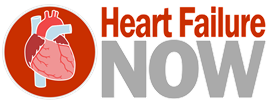Dr. Paul Dorian Bio
If you are looking for local services or treatment in the office or hospital from a Cardiologist, contact a provider such as ( Dr. Paul Dorian ) to inquire if they are accepting patients or you need a referral. Phone number to book an appointment (416) 864-5152 ( Dr. Paul Dorian )
The speaker in the video may have no association with ( Dr. Paul Dorian, Cardiologist Toronto, ON ).
( Dr. Paul Dorian, Cardiologist Toronto, ON ), may talk about some of the conditions and some of the treatment options shown on the videos. Always talk with your Local Cardiologist about the information you learnt from the videos in regards to Atrial Fibrillation treatments and procedures the Local Cardiologist could perform and if they would be appropriate for you. Remember good information from your Local Cardiologist is the corner stone to understanding your Coronary Microvascular Disease condition or disease.
Please contact ( Dr. Paul Dorian, Cardiologist Toronto, ON ) to enquire if this health care provider is accepting new patients. Atrial fibrillation is an irregular heartbeat, also called an arrhythmia, that can increase your risk of heart failure, stroke, blood clots and other heart conditions. It’s normal to feel stressed and anxious about undergoing a procedure for your atrial fibrillation. Everyone does. But keep in mind that we have a whole team of people involved in order to help reduce your stress and anxiety. Coronary artery disease: As plaque builds up it narrows your coronary arteries, decreasing blood flow to your heart. This decreased blood flow can cause chest pain, shortness of breath, palpitations and sweating. A complete blockage can lead to a heart attack.
Heart disease symptoms depend on the type of heart disease you have. However, there are some common cardiovascular disease symptoms that many people experience including:
Atrial fibrillation isn't usually life threatening, but it is a serious medical condition that requires treatment. If you experience atrial fibrillation symptoms, consult with your doctor. Your physician may recommend an electrocardiogram to diagnose your heart condition. The goal of atrial fibrillation treatment is to restore your normal heart rate and rhythm and prevent blood clots
For Heart Disease: Eggplants uniquely high potassium and soluble fibre content make it a particularly
good for heart health because potassium contributes to blood pressure lowering and soluble fibre
contributes to cholesterol lowering. High blood pressure and cholesterol are two of the leading risk factors for cardiovascular disease.
It's important for younger people to be aware of their cardiovascular risk factors, and to do their best to modify them. In particular I think exercise is a critical part of risk reduction, and it's important to have at least half an hour of exercise three times a week. Diet is a big part as well. A low salt diet, low fat diet, high in fruits and vegetables, alcohol moderation is important as well.
And obviously reducing the major risk factors like high blood pressure, high cholesterol, and diabetes control, pays very well long-term dividends. It's important for young people to be informed of their heart disease risk factors and to deal with them before they develop an event rather than after. And, certainly the relationship with their Cardiologist physician is crucial in terms of long term awareness and control of the risk factors.
Its worth noting that the prognosis for individuals with heart failure can vary depending on the severity of the condition and other factors. Some individuals may experience stable heart failure with minimal symptoms, while others may require more intensive medical interventions. Regular follow-up visits with healthcare professionals are essential to monitor the condition, adjust medications as needed, and provide ongoing guidance and support.
Overall, while heart failure is a serious condition, it can be effectively managed with a combination of medications, lifestyle changes, and support from loved ones. By adhering to the recommended treatment plan and making necessary adjustments to one's lifestyle, many people with heart failure can lead full and enjoyable lives.
-
Atrial Impulses: In a normal heart rhythm, the electrical impulses that originate in the sinoatrial (SA) node, often referred to as the heart's natural pacemaker, regulate the heart's rhythm. These impulses travel through the atria, causing them to contract and push blood into the ventricles. In atrial fibrillation, the atria quiver or fibrillate rather than contract effectively. This results in a rapid and irregular heartbeat, with electrical signals firing chaotically and haphazardly, potentially reaching rates of up to 400 impulses per minute.
-
Ventricular Response: Since the atria are not contracting efficiently in AF, the ventricles receive irregular and rapid impulses from the atria. As a result, the ventricles also contract irregularly and at a fast rate (typically between 80 and 180 beats per minute). This irregular and often rapid heartbeat can compromise the heart's pumping function, reducing its ability to effectively move blood through the chambers and out to the body's organs and tissues.
-
Blood Stasis and Clot Formation: The inefficient contraction of the atria in AF can lead to blood stasis or pooling in the atria. When blood remains stagnant for longer periods, it becomes more prone to forming clots. These clots can develop in the atria and, if dislodged, can travel through the bloodstream. If a clot reaches a cerebral artery in the brain, it can block blood flow and lead to a stroke.
-
Stroke Risk: Atrial fibrillation is a significant risk factor for stroke. The formation of blood clots in the atria and their potential to cause a stroke underscores the importance of appropriate management and anticoagulation therapy for individuals with AF. Blood-thinning medications, such as anticoagulants, are often prescribed to reduce the risk of clot formation and stroke.
It's crucial for individuals with atrial fibrillation to work closely with their healthcare provider to develop a comprehensive management plan that addresses the underlying causes, controls the heart rhythm, manages symptoms, and reduces the risk of complications such as stroke. Regular medical follow-ups, lifestyle modifications, and adherence to prescribed treatments are key components of managing atrial fibrillation effectively.
Education
Dr. Paul Dorian MD, MSc, FRCSC, Cardiologist, Toronto ON, Heart Failure NOW
This content is for informational purposes only, and is not intended to be a substitute for professional medical advice, diagnosis or treatment. Always seek the advice of your physician or other qualified healthcare professional with any questions you may have regarding a medical condition.



Ratings for Dr. Paul Dorian MD, MSc, FRCSC, Cardiologist, Toronto ON, Heart Failure NOW
Information
Education
Local Services
Action Plan
Information
Education
Local Services
Action Plan
Information
Education
Local Services
Action Plan